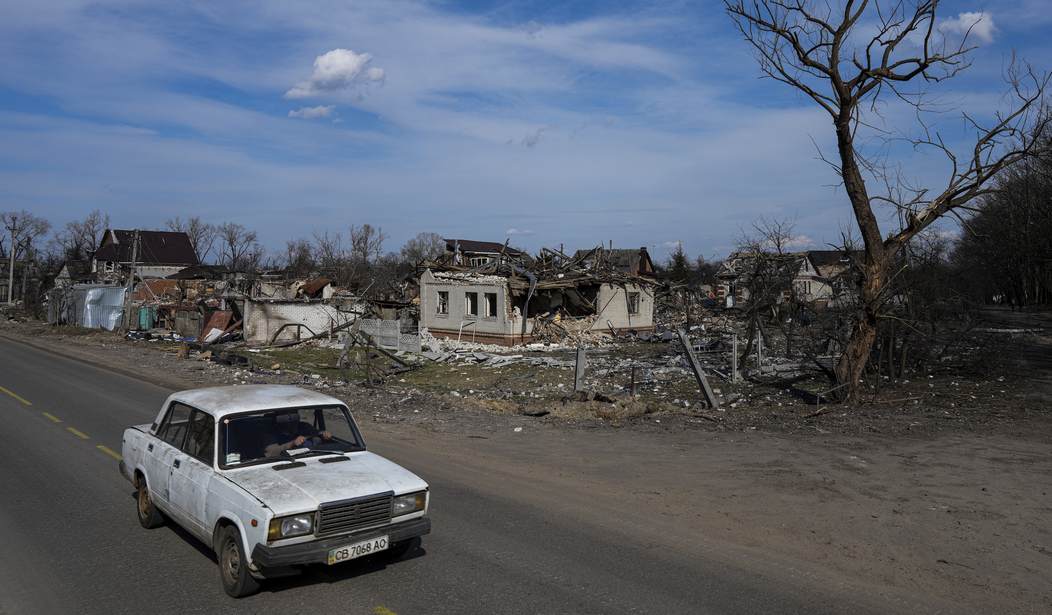Olha Holynska and her six-year-old daughter Sofia arrived by train in what was for them an exciting event August 19, 2023. On this day, the two would have the chance to visit the nearby city of Chernihiv in Northern Ukraine. The two strolled towards their destination, also known as the Alley of Heroes.
As they walked hand in hand, Olha remembers how Sofia's smile lit up her whole face. She had caught sight of the city’s outdoor stage near the drama theater. "Sofia was so theatrical," Olha says. "She was always dancing, singing, and reciting poetry. I understand why the stage caught her attention. She walked over to it, and then got up on the stage, walking around, exploring every part of it.”
Suddenly, Olha noticed that her little daughter had a deep thoughtful look in her eyes. Olha would have liked to ask Sofia what she was thinking, but then the unthinkable happened. The Russians had fired what was probably an Iskander-M rocket right into the heart of the city. "The blast wave lifted the stage off the ground, and it ended up crushing my leg,” Olha said. “I was pinned to the ground. I wanted to rush to reach Sofia, but I couldn’t. I could see Sofia, lying there on the stage, not moving. I was screaming for help, but it felt like no one could hear me."
After several minutes, the frantic mother was able to work her way out from under the part of the stage that was pinning her down and could reach her daughter. The little girl’s eyes were closed. “I begged her to wake up,” Olha remembers. Sofia didn’t respond.
Olha was desperate to get her child to the nearby hospital, but with the rocket attack, there were no ambulances available. Finally, a kind driver saw what was going on and drove Olha and Sofia to the nearest hospital.
Recommended
"I was talking to her all the way, holding her hand, begging her to stay with me," Olha said, her voice sounding as if she’s reliving it. "When we arrived, the doctors couldn't save her. The shrapnel had caused severe injuries. I so wanted her to wake up, but she was gone."
The pain of losing her daughter is unbearable. "Sofia loved life and wanted to live. Now, every time I visit the cemetery, I remember her smiling on that stage. I put flowers, and talk to her, telling her that I love her."
Olha was silent a moment and then said softly. "Maybe Sofia had a mission to show the world what's happening. She was so active, so full of life. Maybe she wanted to open people's eyes."
Olha's grief is profound, and her journey through it has been supported by Galina Itskovich, a New York licensed clinical social worker specializing in trauma. She works with the Healing Hidden Wounds project to provide "emergency psychological first aid" for Ukrainians like Olha. This project is an initiative designed to address the mental health of veterans, service members, and those suffering from invisible scars of war.
Itskovich explained that Olga's trauma is not just from losing her child but also from having witnessed the horrific event. "The most difficult time for Olha is at night, when she always has the same nightmare where her daughter is lying there, unresponsive,” Itskovich said.
Olha also suffers from debilitating and irrational guilt. She keeps thinking that if only she had done almost anything different, Sofia wouldn’t have been on the stage at the precise moment when the Russian rocket hit.
Itskovich encourages Olha to recall meaningful episodes of her motherhood when she made sound decisions and could successfully protect her daughter. The goal is to ward off irrational thoughts associated with the moments prior to or leading to Sofia's fatal injury.
Itskovich’s goal for Olha is to refute irrational thinking and initiate the process of building little islands of safety within her memories. Itskovich also wants Olha to write, "I am a good mom," on a small piece of paper to carry with her. This simple act helps counter her irrational guilt and bring her back to reality.
Olha's journey through grief is ongoing. There is no timeline, and the waves of sorrow come and go. With Itskovich’s guidance, Olha is learning to navigate her emotions and find moments of peace amidst the pain. Today she clings to the idea that Sophia’s death has meaning, if it opens the world’s eyes to the suffering the Russians’ brutal invasion is causing.

























Join the conversation as a VIP Member